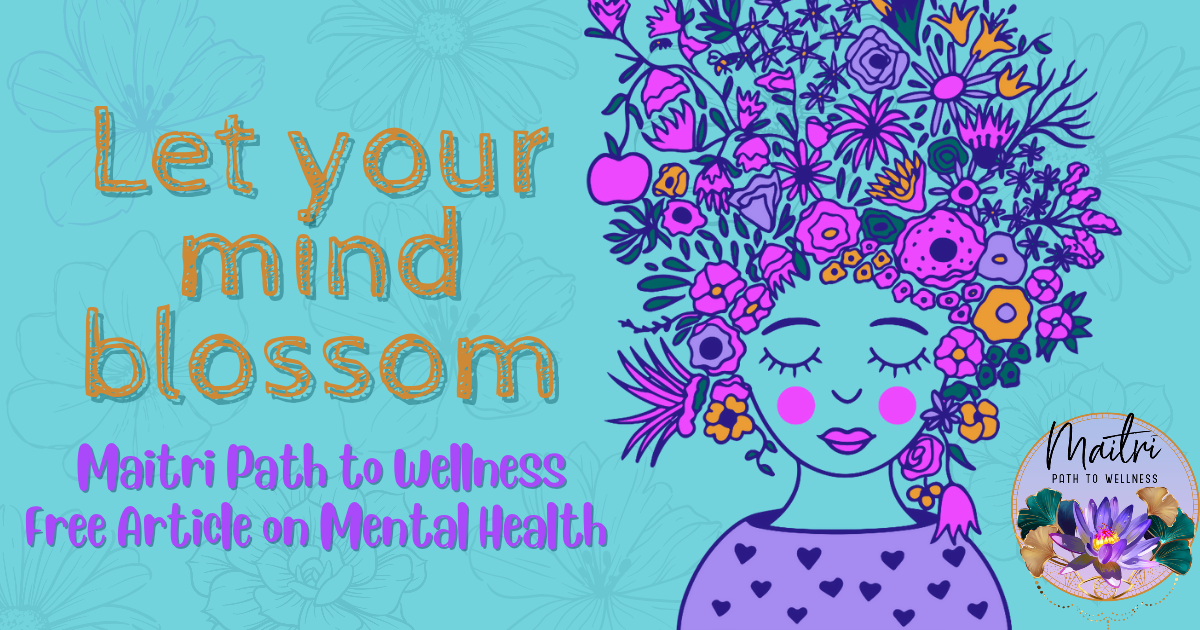Introduction
Living with anxiety can be challenging, affecting our overall well-being and quality of life. However, it’s important to remember that there are various coping strategies available to help manage anxiety effectively. In this article, we will explore 20 powerful anxiety coping strategies that have the potential to transform your life and help you regain control over anxiety. By understanding different types of anxiety disorders and recognizing their symptoms, you can implement a range of cognitive and behavioral coping strategies. Additionally, we will delve into the importance of social support, the role of professional help, and effective long-term management strategies.
Understanding Anxiety
Anxiety disorders come in different forms, each with its unique set of symptoms and challenges. By gaining a deeper understanding of anxiety and its various types, you can tailor your coping strategies to suit your specific needs.
Definition and Types of Anxiety Disorders
Anxiety disorders are a group of mental health conditions characterized by excessive worry, fear, and apprehension. They can significantly impact a person’s thoughts, emotions, and behaviors. There are several types of anxiety disorders, including Generalized Anxiety Disorder (GAD), Panic Disorder, Social Anxiety Disorder, and Phobias. Understanding the specific characteristics of each type can help in identifying and managing anxiety effectively.
Generalized Anxiety Disorder (GAD) is characterized by persistent and excessive worry about various aspects of life, even when there is no apparent reason for concern. People with GAD often find it challenging to control their worry, and it may interfere with their daily functioning.
Panic Disorder involves recurrent panic attacks, which are sudden episodes of intense fear and discomfort. These attacks are often accompanied by physical symptoms such as rapid heartbeat, shortness of breath, and a sense of impending doom. Panic attacks can be debilitating and lead to a fear of future attacks.
Social Anxiety Disorder, also known as social phobia, is characterized by an intense fear of social situations and the fear of being negatively judged or evaluated by others. People with social anxiety may avoid social interactions and experience significant distress in such situations.
Phobias are intense and irrational fears of specific objects, situations, or activities. Common phobias include fear of heights (acrophobia), fear of spiders (arachnophobia), and fear of flying (aviophobia). Phobias can significantly impact a person’s daily life and cause distress when faced with the feared stimulus.
Recognizing the specific type of anxiety disorder you may be experiencing is the first step in developing appropriate coping strategies.
Common Symptoms of Anxiety
Anxiety manifests through a variety of physical, emotional, and behavioral symptoms. Recognizing these symptoms is essential in developing effective coping strategies.
Physical symptoms of anxiety may include:
- Increased heart rate and palpitations
- Shortness of breath or difficulty breathing
- Muscle tension and aches
- Sweating and trembling
- Upset stomach or digestive issues
- Headaches or migraines
Emotional symptoms of anxiety may include:
- Excessive worry and fear
- Restlessness or feeling on edge
- Irritability and mood swings
- Difficulty concentrating or focusing
- Feeling overwhelmed or constantly on high alert
Behavioral symptoms of anxiety may include:
- Avoidance of triggering situations or places
- Difficulty sleeping or insomnia
- Changes in appetite or weight
- Nail biting or other nervous habits
- Social withdrawal or isolation
Understanding these symptoms and their impact on your daily life can help you develop coping strategies that target specific areas of concern.
The Power of Coping Strategies
Coping strategies play a crucial role in managing anxiety. By adopting a coping mindset and implementing various cognitive and behavioral techniques, you can empower yourself to navigate through anxious thoughts and emotions.
Developing a Coping Mindset
Embracing acceptance, self-compassion, and seeking support are fundamental aspects of developing a coping mindset.
Acceptance involves acknowledging and accepting that anxiety is a part of your life. Rather than fighting against it or trying to suppress it, accepting anxiety allows you to work with it and find effective ways to manage it.
Self-compassion is about treating yourself with kindness and understanding, especially during difficult moments. It involves offering yourself support, self-care, and self-encouragement. By cultivating self-compassion, you create a nurturing inner environment that can counteract anxiety’s negative impact.
Seeking support from loved ones or professionals is crucial in building a strong support network. Talking to trusted friends or family members about your anxiety can provide comfort and reassurance. Additionally, seeking help from mental health professionals, such as therapists or counselors, can offer valuable guidance and support in developing coping strategies.
Cognitive Coping Strategies
Cognitive coping strategies focus on addressing and reframing negative thought patterns and beliefs associated with anxiety. By challenging and modifying these thoughts, you can change the way you perceive and respond to anxious situations.
Positive self-talk involves consciously replacing negative, self-defeating thoughts with positive and empowering ones. It’s about recognizing and challenging negative self-talk patterns and replacing them with supportive, uplifting statements. For example, replacing “I can’t handle this” with “I am strong and capable of managing this situation.”
Mindfulness and meditation practices can help cultivate present-moment awareness and reduce anxiety. By paying attention to the present moment without judgment, you can observe anxious thoughts and emotions without becoming overwhelmed by them. Regular mindfulness meditation practice can promote calmness and resilience in the face of anxiety.
Journaling and expressive writing provide an outlet for exploring and processing anxious thoughts and emotions. By putting your thoughts and feelings on paper, you can gain clarity, identify patterns, and gain insights into your anxiety triggers. Writing can be a therapeutic tool for self-reflection and self-discovery.
Cognitive restructuring techniques involve examining and challenging distorted thinking patterns associated with anxiety. By questioning the accuracy and validity of anxious thoughts, you can reframe them in a more balanced and realistic way. Cognitive restructuring helps to reduce the intensity of anxious thoughts and replace them with more rational and adaptive ones.
By incorporating these cognitive coping strategies into your daily life, you can cultivate a more positive and resilient mindset, effectively managing anxiety.
Behavioral Coping Strategies
Behavioral coping strategies focus on adopting healthy lifestyle habits, stress management techniques, and behavioral interventions to reduce anxiety levels and promote overall well-being.
Lifestyle Changes for Anxiety Management
Making certain lifestyle changes can significantly impact anxiety levels. The following areas are particularly important:
- Regular exercise and physical activity: Engaging in regular exercise releases endorphins, the body’s natural feel-good chemicals, and helps reduce anxiety. Aim for at least 30 minutes of moderate-intensity exercise most days of the week.
- Healthy sleep habits: Prioritize quality sleep by establishing a consistent sleep routine, creating a calming sleep environment, and practicing relaxation techniques before bed. Poor sleep can worsen anxiety symptoms, so it’s essential to prioritize restful sleep.
- Balanced diet and nutrition: Eat a well-rounded diet that includes whole grains, fruits, vegetables, lean proteins, and healthy fats. Avoid excessive consumption of caffeine, sugar, and processed foods, as they can exacerbate anxiety symptoms.
Stress Management Techniques
Managing stress is crucial for anxiety management. The following techniques can help reduce stress levels and promote relaxation:
- Relaxation exercises: Deep breathing, progressive muscle relaxation, and guided imagery are effective techniques for inducing relaxation and reducing anxiety. Practice these techniques regularly, especially during times of heightened stress.
- Time management and prioritization: Effective time management can reduce feelings of overwhelm and increase productivity. Prioritize tasks, set realistic goals, and allocate time for self-care activities to minimize stress.
- Hobbies and creative outlets: Engaging in activities you enjoy, such as hobbies, art, or music, can provide a much-needed outlet for stress and anxiety. Find activities that bring you joy and make them a regular part of your routine.
- Setting boundaries and saying no: Learning to set healthy boundaries and saying no when necessary is essential for managing stress. Prioritize your needs and limit obligations that may contribute to feelings of overwhelm.
By incorporating these behavioral coping strategies into your daily life, you can create a solid foundation for managing anxiety and promoting overall well-being.
Social Support and Connection
Building a supportive network and effective communication skills are essential for managing anxiety. By fostering meaningful connections and practicing open communication, you can find solace and understanding.
Building a Supportive Network
Nurturing existing relationships and seeking support from support groups or therapy can provide a strong foundation for anxiety management.
Strengthening existing relationships: Cultivate relationships with family and friends who are understanding and supportive. Share your experiences and feelings with them, and don’t hesitate to ask for support when needed.
Joining support groups or therapy: Consider joining support groups where you can connect with others who are going through similar experiences. Alternatively, seeking therapy or counseling can provide professional guidance and support tailored to your specific needs.
Effective Communication Skills
Developing effective communication skills helps express your needs, seek help when required, and strengthen relationships, leading to a more supportive environment.
Expressing needs and boundaries assertively: Practice assertive communication, expressing your needs, and setting boundaries in a clear and respectful manner. Communicating assertively helps prevent feelings of resentment and reduces anxiety associated with unexpressed needs.
Seeking help when needed: Recognize that it’s okay to ask for help when anxiety becomes overwhelming. Whether it’s seeking assistance from a trusted friend or professional, reaching out for support is a sign of strength.
Active listening and empathy: Cultivate active listening skills and practice empathy when engaging in conversations with others. By being present and truly listening to others, you can deepen connections and create a supportive environment.
By building a supportive network and improving communication skills, you can enhance your coping abilities and feel more supported on your journey of anxiety management.
Professional Help and Treatment Options
While self-help strategies are valuable, seeking professional help can greatly enhance your journey toward anxiety relief. Therapeutic approaches, such as Cognitive-Behavioral Therapy (CBT), exposure therapy, and medication options, can be effective tools in managing anxiety disorders.
Therapy Approaches for Anxiety
Cognitive-Behavioral Therapy (CBT): CBT is a widely used and evidence-based therapeutic approach for anxiety disorders. It focuses on identifying and challenging unhelpful thought patterns and behaviors that contribute to anxiety. CBT helps individuals develop practical coping skills and strategies to manage anxiety symptoms effectively.
Exposure Therapy: Exposure therapy is commonly used for specific phobias and involves gradually and safely exposing individuals to their feared objects or situations. Through repeated exposure, individuals learn that their anxiety lessens over time, leading to a reduction in fear.
Acceptance and Commitment Therapy (ACT): ACT combines mindfulness techniques with acceptance of anxious thoughts and feelings. It aims to help individuals accept their anxiety and focus on living a fulfilling life, even in the presence of anxiety.
Medication options: In some cases, medication may be prescribed to manage anxiety symptoms. Antidepressants and anti-anxiety medications can help regulate brain chemistry and reduce anxiety. It’s important to consult with a healthcare professional to determine if medication is appropriate for your situation.
Integrating Self-Help Techniques with Professional Treatment
Self-help techniques can complement professional treatment and enhance the overall effectiveness of anxiety management. By implementing the coping strategies discussed earlier, you can actively participate in your own healing process and support the work done in therapy.
Strategies for Long-Term Anxiety Management
Sustained anxiety management requires ongoing effort and dedication. Prioritizing self-care, consistency in coping techniques, and adapting strategies to your changing needs are vital for long-term success.
Self-Care and Self-Compassion
Prioritizing self-care activities and engaging in activities that bring you joy and relaxation are essential for managing anxiety in the long run. Consider the following self-care practices:
- Engage in regular exercise and physical activity that you enjoy. This not only helps in reducing anxiety but also promotes overall well-being.
- Nurture your body by maintaining a balanced and nutritious diet. Avoid excessive consumption of caffeine, as it can contribute to anxiety symptoms.
- Practice good sleep hygiene by establishing a consistent sleep routine and creating a relaxing bedtime environment.
- Incorporate relaxation techniques into your daily routine, such as deep breathing exercises, progressive muscle relaxation, or meditation.
- Engage in activities that bring you joy and help you unwind, such as reading, painting, listening to music, or spending time in nature.
Remember, self-care is not selfish but a necessary component of managing anxiety and maintaining your overall well-being.
Continuing to Practice Coping Techniques
Consistency and persistence in practicing coping techniques are crucial for long-term anxiety management. Keep the following in mind:
- Be consistent: Incorporate coping techniques into your daily routine. Consistency allows these strategies to become habits, making them more effective in managing anxiety over time.
- Adapt and refine: As you progress in your anxiety management journey, you may find certain techniques more beneficial than others. Adapt and refine your coping strategies to suit your changing needs and preferences.
- Seek ongoing support: Don’t hesitate to seek ongoing support from loved ones, support groups, or mental health professionals. They can provide guidance, accountability, and reassurance as you continue to navigate anxiety.
By consistently practicing coping techniques and adapting them to your specific needs, you can build resilience and maintain effective anxiety management in the long term.
Conclusion
By incorporating these 20 powerful anxiety coping strategies into your life, you can take significant steps towards overcoming anxiety and transforming your overall well-being. Remember, everyone’s journey is unique, so it’s important to find the strategies that resonate with you and adapt them to your specific needs. With the right tools, support, and mindset, anxiety doesn’t have to control your life.
FAQs (Frequently Asked Questions)
Can anxiety coping strategies completely eliminate anxiety?
While coping strategies can significantly reduce anxiety symptoms and improve overall well-being, complete elimination of anxiety may not be realistic for everyone. The goal is to develop effective tools to manage and cope with anxiety.
How long does it take for coping strategies to show results?
The time it takes to see results from coping strategies can vary from person to person. Consistent practice and implementation of coping techniques, along with patience and perseverance, are key to experiencing positive changes over time.
Are there any natural supplements that can help with anxiety?
Certain natural supplements, such as lavender, chamomile, and omega-3 fatty acids, have shown potential in reducing anxiety symptoms. However, it’s important to consult with a healthcare professional before incorporating supplements into your anxiety management plan.
Can coping strategies be effective for all types of anxiety disorders?
Coping strategies can be effective for various types of anxiety disorders, but their efficacy may vary depending on individual circumstances. It’s important to work closely with mental health professionals to develop a comprehensive treatment plan tailored to your specific needs.

Hey there friend! I’m Brenden Fasken, a passionate advocate for mental health and the transformative power of recovery. As a proud recovering addict, I’ve traveled the winding roads of addiction and emerged on the other side, ready to share my experiences and insights with you. I enjoy sharing blogs that delve into the complexities of mental health, substance use disorders, and the journey of personal growth. I aim to break down barriers, spark conversations, and offer a beacon of hope to those who may be struggling. So, join me as we embark on this empowering journey together, exploring the depths of our minds, celebrating resilience, and embracing the transformative potential within each of us.
Through my own recovery journey, I’ve learned that life’s challenges can be our greatest teachers. With each hurdle, I’ve gained insights and perspectives that have shaped my understanding of mental health and addiction. From the darkest moments to the brightest triumphs, I share personal anecdotes, reflections, and practical advice that I’ve gathered along the way. Together, we’ll navigate the labyrinth of emotions, challenge societal stigmas, and uncover the power of self-care and self-discovery. So, buckle up and get ready for an engaging and insightful ride as we explore the nuances of mental health and embark on a shared quest for personal growth and well-being.

